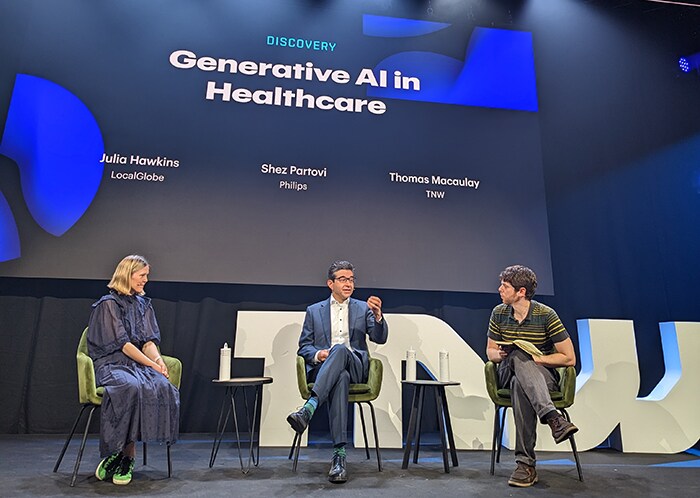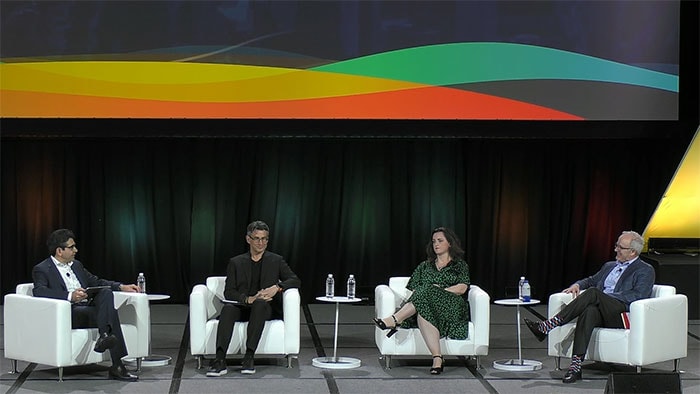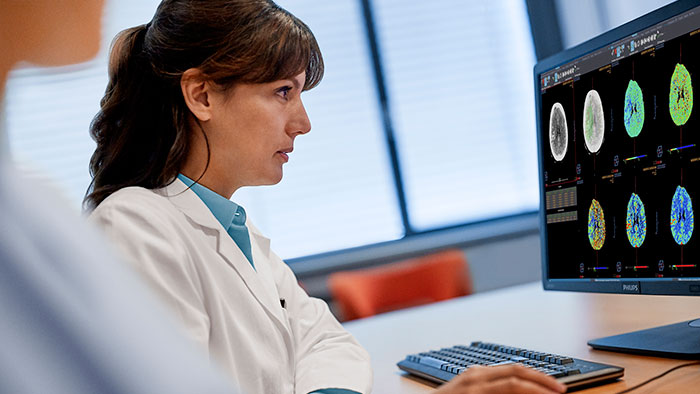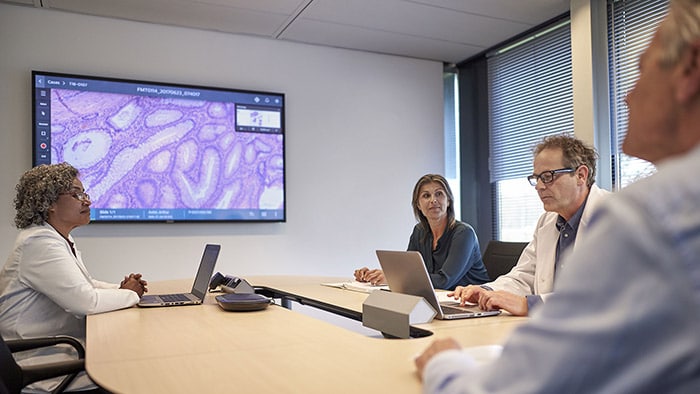In an era marked by global healthcare challenges, such as staff shortages, data overload, workflow inefficiency and limited access to care, the need for innovative solutions has never been greater. Generative AI is emerging as a technology offering transformative opportunities across society, including in the delivery of efficient and effective healthcare. By extracting valuable insights from vast amounts of data, it could have the potential to revolutionize healthcare systems worldwide. Speaking at The Next Web 2023, Philips’ Chief Innovation & Strategy Officer Shez Partovi touched on three pivotal applications of generative AI, focusing on the benefits each of them offers to patients, clinicians, and hospital administrators.

Following explosive growth in recent years, AI continues to be a key area of future investment for healthcare leaders. Philips’ Future Health Index 2023 revealed that 83% of healthcare leaders are planning to invest in AI in the next three years, up from 74% in 2021. Applications already being deployed range from automated document generation to AI that can help schedule patients, allocate staff resources, and schedule clinical tasks. In a healthcare landscape currently suffering from acute staff shortages and financial constraints, these applications will continue to play a vital role in enabling more efficient use of resources according to Shez.
Engaging patients – While AI is already helping allocate resources more efficiently, generative AI is a potential game-changer of even greater magnitude. With diagnosis and treatment becoming ever more complex and patient-specific, generative AI has the potential to distill complex information into easily understandable formats, empowering patients, their families and consumers to more actively participate in their healthcare journey. By bridging the health literacy gap, it promises to facilitate informed decision-making, leading to improved health outcomes and a more engaged patient population. “Generative AI has the potential to allow patients to “talk to” their medical charts, ask questions, and be educated on their own health status,” Shez shared with the audience at The Next Web.
Empowering clinicians – Clinicians are at the forefront of delivering quality care but often struggle to make the most of the available data due to its disconnected nature and volume. Generative AI offers a solution in the form of advanced tools that can convert complex data into actionable insights. By providing summaries, AI-based predictions, and intuitive visualizations, it can help clinicians make informed decisions efficiently and quickly. Generative AI offers us a glimpse of how AI can have a significant positive impact on nursing workflow. Current bedside monitoring devices deliver real-time data on current patient vital signs. With generative AI, bedside monitors could also display the probability of patient instability in the future, helping nursing staff anticipate and act sooner to improve patient care. Moreover, by combining this predictive analytics capability with data from other sources such as the patient’s medical record, generative AI could be even more accurate and provide robust clinical prediction so clinicians can intervene and prevent poor outcomes. One hospital is already using AI-based prediction technology to reduce the number of cardiac arrests by more than 86% in the ICU [1]. Predictive analytics are also being used to help identify individuals at risk of life-threatening heart rhythm disorders.

Shez: “The level of innovation is sometimes hard to imagine and is not limited to text-based data sources. In the future, a pathologist could “talk to” the digital pathology slide: “Are there any small blue cells?” could be a question, and the generative AI would then pan to the part of the slide where Lymphoma cells may be found. We really have not yet realized the quantum leap ahead of us in healthcare, thanks to the potential of generative AI.” [1] Subbe, C.P., Duller, B. & Bellomo, R. Crit Care (2017) 21: 52. doi:10.1186/s13054-017-1635-z
Streamlining administrative operations – While the clinical aspects of generative AI have garnered significant attention, its potential for optimizing operational and administrative functions should not be overlooked. In an era where healthcare systems strive for cost savings and efficient resource allocation, generative AI is emerging as a powerful ally. Through operational forecasting, for example, it can predict patient volumes in emergency departments and forecast staffing requirements. By optimizing workflows and reducing inefficiencies, generative AI will help healthcare organizations operate more effectively, resulting in enhanced productivity and improved patient outcomes.
Philips HealthSuite Imaging on AWS, a new addition to Philips’ broad capabilities in enterprise informatics, enables improved image access speeds, reliability, and data orchestration for radiologists and clinicians across the entire imaging workflow – from diagnosis to therapy selection, treatment, and follow-up. It also allows clinicians to access the latest AI-driven innovations from anywhere, and healthcare organizations to reduce costs previously invested in on-premise data centers.
Overcoming challenges and embracing innovation – Implementing generative AI in healthcare is not without its challenges. Regulatory considerations and clinician acceptance are critical factors influencing successful adoption. Striking the right balance between regulation and innovation is key to ensuring progress. By providing guidance, support, and boundaries, regulations should facilitate the responsible development and deployment of AI technology. Fostering a values-based approach to innovation, one that considers ethical and societal implications, will build trust and ensure it is used responsibly.
Generative AI holds tremendous potential to support healthcare across multiple dimensions. Patients will become active participants in their healthcare journey and clinicians will gain access to valuable insights for better informed decision-making. Moreover, the integration of generative AI in administrative operations will streamline workflows, enhance diagnostic capabilities, and optimize resource allocation, leading to improved patient outcomes, reduced costs, and increased efficiency. Through collaboration, Philips aims to harness the power of AI to support healthcare delivery, ultimately improving lives.
Share on social media
Topics
Contact

Joost Maltha
Philips Global Press Office Tel: +31 6 10 55 8116
You are about to visit a Philips global content page
Continue












